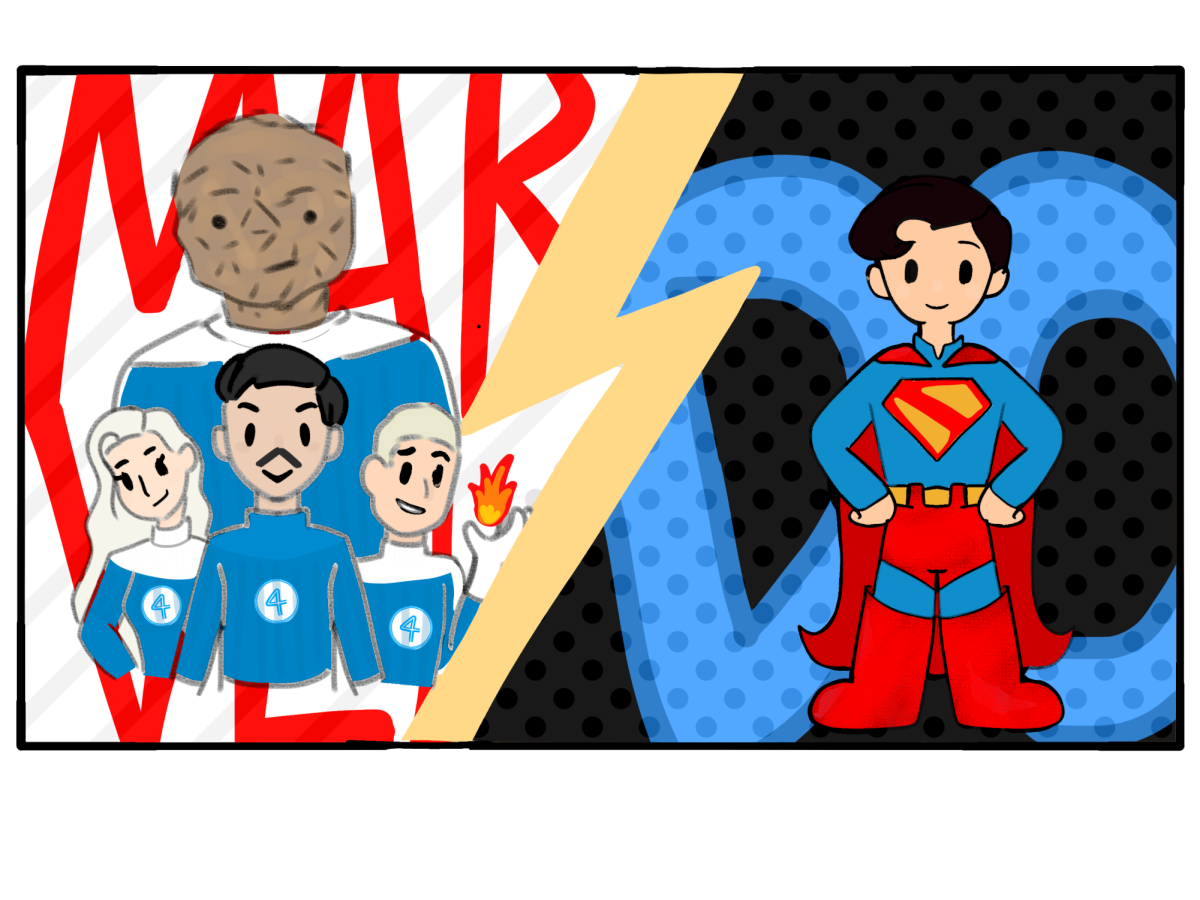In the entertainment industry, companies have waged war against one another through a wide array of tactics to compete for public appeal. The rivalry between Marvel and DC is indisputably the most prominent of these rivalries.
Audiences are entering a stage where they develop “superhero fatigue”, and as all franchises approach a post-pandemic period, both Marvel and DC are to deal with several challenges.
Marvel’s Cinematic Universe was just as unstoppable as Thanos was in “Avengers: Infinity War” in the entertainment industry, but it hit turbulence this year. Phase Six of the franchise kicked off with movies such as “Captain America: Brave New World” and “The Fantastic Four: First Steps,” which totaled about $935 million in revenue. Though this may sound like a huge sum, it is a far cry from the pre-2020 billion-dollar norms we saw before the outbreak of the COVID-19 pandemic. Critics point to oversaturation as a central issue.
With eight Disney+ series in recent phases weighing down interest, combined with production delays from strikes and mixed reviews, Marvel’s dominance no longer feels guaranteed. While “Deadpool & Wolverine” provided a boost in 2024, 2025’s underperformance signals that Marvel is still struggling to regain popularity.
DC, meanwhile, has faced its own challenges. Past movies, such as “Aquaman” and “The Lost Kingdom,” continue to cast a shadow over the franchise’s reputation. Yet under the direction of James Gunn and Peter Safran, DC began its rebooted universe with the movie “Superman,” which brought in $614 million globally and managed to outpace every MCU release this year. Unlike Marvel’s multiverse, DC is emphasizing the reintroduction of older movies and giving directors more creative breathing room.
Looking ahead, both studios appear poised for comebacks. For DC, “Superman” marks the first step in a promising new direction, with future projects in the coming year like Supergirl and Clayface aiming to solidify this momentum. For Marvel, the real test will come in 2026 as well, when anticipated releases like “Spider-Man: Brand New Day” and “Avengers: Doomsday” are expected to reignite audience enthusiasm on a massive scale.
At the end of the day, although superhero films ended their 14-year streak of hitting $700 million annually in 2025, both Marvel and DC remain as cornerstones of global entertainment. Their rivalry may have entered a rough chapter, but signs point to fresh opportunities for resurgence in the years ahead.






















